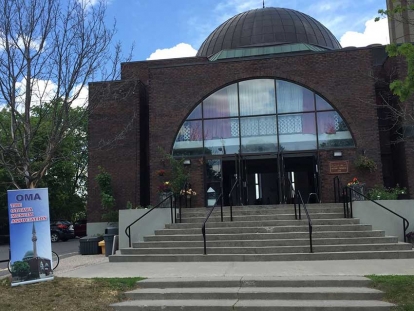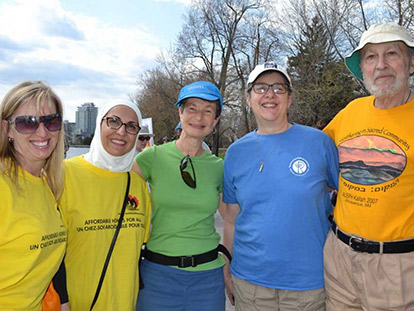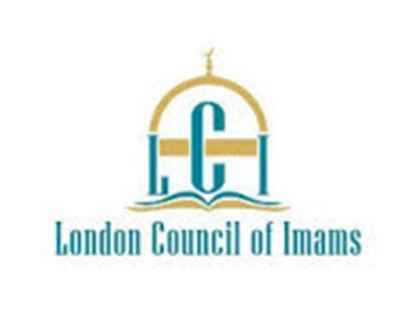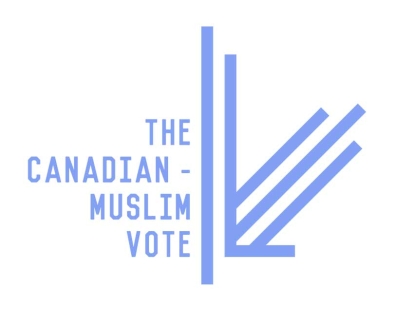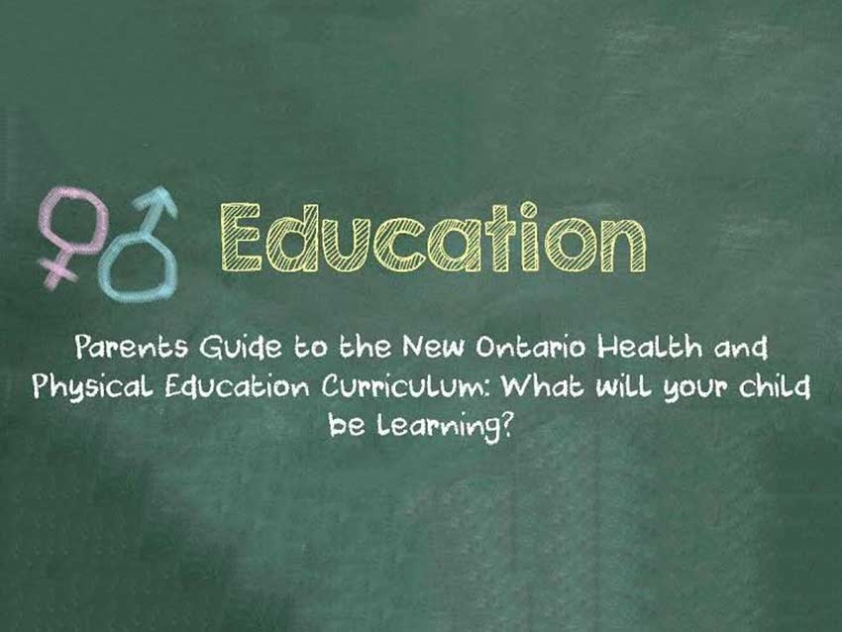
May
Abraar School Educators Present on New Sex Ed Curriculum for Muslim Parents
Written by Salma MahgoubAn information session was organized Saturday at the MAC Youth Centre to explain Ontario’s updated Health and Physical Education curriculum to Muslim parents. The revised curriculum will be introduced in public schools starting September 2015.
Some parents from a diversity of religious and cultural backgrounds have expressed concerns regarding the sex-education component, which constitutes a portion of the curriculum, believing that some topics related to sexuality and sexual health would be taught too early in their child’s education. These concerns have pushed a group of parents to launch a strike week which started Monday, May 4, by having their children not attend school.
The session held this weekend aimed to guide parents through the new curriculum by analyzing its content and outlining parental resources, rather than taking a position on the curriculum itself.
“We recognized that parents have the right to raise their children how they see fit,” stated Dr. Aisha Sherazi who presented at the meeting. “This last point was key in our not taking a position on the curriculum.”
While presenters did not give an opinion on the curriculum, they expressed the need for parents as first educators to be prepared to hold open discussions with their children on this subject.
Abraar School principal Dr. Mohammed Saleem, who also presented at the session, stressed the importance of building a parent-child relationship where children can freely discuss sensitive topics, “Otherwise that child is going to go and talk about it with someone [else],” he said, “and at that time you will not have any control.”
Dr. Sherazi, who is also the Al Furqan School principal and a pastoral counselor with the Ottawa-Carleton District School Board (OCDSB), echoed this belief by saying that the session aimed to encourage parents to have “honest, open discussions about issues related to health and safety” with their children.
The session addressed concepts in the curriculum that concerned some parents, such as teaching grade one students to identify different body parts, including genitalia. Presenters explained that the curriculum introduces this for the child’s personal safety by allowing them to communicate and get help if needed in cases such as abuse or illness. “I think in many cultures it’s always shushed,” said Dr. Saleem on this point, “then when something bad does happen, the tendency of the child is not to talk…and that can harm the child.”
The presenters also explored how different types of families will be explored in the early grades, including that some children have two mothers or two fathers as the reality is that in public schools some children do have same-sex parents.
Both Dr. Sherazi and Dr. Saleem admitted that part of the challenge for parents might be that if they themselves never learned about these issues when they were a child, they might not be prepared to have these discussions with their own children. But both stressed that times have changed dramatically from when they were children, particularly in terms of children’s access to the internet and how this has become a source of information for them. They also recommended that if parents wanted to better understand the Islamic perspective on some of these subjects, they should consult with Muslim scholars who understand the realities of life in a Western context.
The presentation outlined approaches for parents to express any dissatisfaction about the curriculum directly to their child’s school by sending letters to school principals, or participating in school councils. They also suggested that parents work with their schools to find solutions and consider volunteering at their children’s schools if they have time.
Organizers also provided a list of books available at the Ottawa Public Library for parents to educate themselves and their children on health and safety-related issues. “We provided a list, but the easiest thing to do is to approach a librarian and simply ask for help,” Dr. Sherazi shared.
Although Dr. Sherazi’s children are both in MAC Islamic schools, reviewing the new curriculum led her to begin having these discussions with her own children, which she used books from the library to help facilitate.
During the session, Dr. Saleem explained that as a private school, Abraar would not be mandated to follow the new curriculum. Presenters additionally explained that, while several Muslim parents saw a solution in transferring their children to the private school, Abraar is currently at full capacity.
Presenters further expressed the importance for parents to be engaged and informed in their child’s education and that this might mean finding ways to educate themselves on the subjects their children will be learning.
As Ontario teachers will receive summer training sessions to prepare for upcoming changes in the curriculum, schools should also provide training for parents, Dr. Saleem recommended. “I think if parents are partners in their child’s education, there should be training sessions for parents,” he explained, adding that this would make concerned parents feel more comfortable as they would be fully aware of what their children will be taught and will be prepared to have their own discussions with their children on these subjects from a faith perspective.
The same session will be presented again this week during the following dates:
To view the PowerPoint Presenation on the New Health Curriculum click here.
To view the Sample Letters to Principals click here.
To view the suggested list of Ottawa Public Library books to read click here.
For more information on Ontario’s 2015 Health and Physical Education Curriculum, visit http://edu.gov.on.ca/eng/
This article was produced exclusively for Muslim Link and should not be copied without prior permission from the site. For permission, please write to info@muslimlink.ca.


